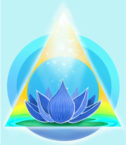Know Thyself
Why should we know ourselves? What does it have to do with the emergence of a new consciousness? Historical figures laid the foundation for new thought on this subject. Socrates used the maxim ‘know thyself’ as his explanation to Phaedrus for why he had no time for mythology or other far flung topics, when he said, “But I have no leisure for them at all; and the reason, my friend, is this: I am not yet able, as the Delphic inscription has it, to know myself; so it seems to me ridiculous, when I do not yet know that, to investigate irrelevant things.”
Socrates said that people make themselves appear ridiculous when they are trying to know obscure things before they know themselves. Plato also alluded to the fact that understanding ‘thyself,’ would have a greater yielded factor of understanding the nature of a human being. Therefore, to know and understand oneself would enable the understanding of others as a result.
Then, in 1831, Ralph Waldo Emerson wrote a poem entitled “Γνώθι Σεαυτόν”, or Gnothi Seauton (‘Know Thyself’), on the theme of ‘God in thee.’ The poem was an anthem to Emerson’s belief that to ‘know thyself’ meant knowing the God which Emerson felt existed within each person.
Perhaps the new consciousness is more about a new awareness of who we are at essence in connection with the whole of life, here and elsewhere in the universe. With self-awareness, much of the pain and confusion we suffer in life can be transcended to free the mind for higher progress and achievement, for inner peace and joy. Humanity has long been viewed as being intricately and synergistically interconnected with all of life on the planet and new thought suggests we are made of the same elements of the stars. Therefore, self-knowledge and the authentic expression of each human being makes its contribution to the evolution of the entire cosmos.
“Know then thyself, presume not God to scan, The proper study of mankind is Man.”
from”An Essay on Man, Epistle II” by Alexander Pope
Candice Powers
June 29,2012
